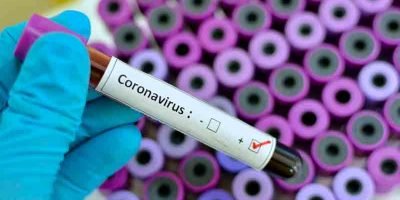However, only a few tests were carried out for the new mutations. Since February 8th, the samples have been randomly tested for the mutations. The current data are therefore much more representative, but not all laboratories can carry out genome sequencing, which leads to a bias.
Does the vaccination work anyway?
Depending... For the variant from Great Britain it can be said: Probably yes - this is shown by preliminary results from the manufacturers and some research teams. Virologists such as Prof Liam Smeeth (Professor of Clinical Epidemiology, and Dean of the Faculty of Epidemiology and Population Health, London School of Hygiene and Tropical Medicine) currently do not see sufficient justification that the vaccinations should be completely ineffective so quickly. This is because the vaccination is targeting the spike protein, which is precisely the trait of the virus on which some of the mutations occurred. However, the antibodies formed by the vaccination recognize the entire spike protein - individual mutations should therefore, according to experts, not render the vaccination ineffective.
In addition, the immune response is not only based on neutralizing antibodies, but also on T- and B-cell responses. This is also stimulated by vaccinations, sometimes better than after a natural infection. How this part of the immune response reacts to the new variants has not yet been investigated.
The vaccinations protect against the new variants to varying degrees
Because the effectiveness depends on the respective virus variant and the respective vaccine. In the meantime, tests have been carried out to determine how well vaccinations can reduce the number of cases of illness. However, vaccinations are still going to be the best protection against coronavirus.
The mRNA vaccines protect similarly well against variant B.1.1.7, which was discovered in Great Britain - the protective effect remained at around 90 percent in laboratory tests. Protein-based vaccines were similarly high, even in the field trial, at 86 percent, while Astra Zeneca's vector vaccination was lower - at 75 percent.
In South Africa, on the other hand, the effectiveness fell more significantly. The vector vaccines tested there only showed an effectiveness of 10 to 57 percent. However, the study with the very low value of 10 percent is not really meaningful because no older subjects were included. The protein-based vaccine achieved an effectiveness of up to 60 percent. At least the data show that none of the vaccinated people were hospitalized or died.
The immune response remains at a high level
How the mRNA vaccinations work against the variant from South Africa has so far only been investigated in laboratory tests (as is the case with the variant from Great Britain). There you look at the immune reaction with different tests - you examine, for example, how active the antibodies in the blood of vaccinated and recovered people are against the new variants. So far it has been shown: With the South African variant, it may reduce protective antibodies elicited by the vaccine by two-thirds (thus reducing the immunity by a third). That sounds dramatic, but: The immune reaction still remains at a high level.
The vaccinations in particular seem to produce higher so-called antibody titers than a natural infection. The fact that the immune response worsens does not mean that the vaccinations will immediately lose their usefulness. University of Texas Medical Branch professor Pei-Yong Shi said he believes the vaccine will likely be protective against the variant, adding that he suspects the immune response observed is likely to be significantly above where it needs to be to provide protection.
How is it tested whether the immune protection is still working?
How well the antibodies protect against the new variants after an infection or vaccination is checked in the laboratory. To do this, you use blood, the serum, from vaccinated people - or from people who have survived a natural infection with the coronavirus.
The immune response is tested with so-called pseudoviruses. You take other viruses, for example HIV or lentoviruses, and use their virus envelope, which you equip with spike proteins of the coronavirus.
In order to test the effects of the individual mutations, the pseudoviruses are produced with spike proteins that show the same mutations as the new variants - and only test a single mutation or several at the same time. Because one thing is clear: individual mutations can have different effects than the combination of mutations.
(Note: You can view every article as one long page if you sign up as an Advocate Member, or higher).





